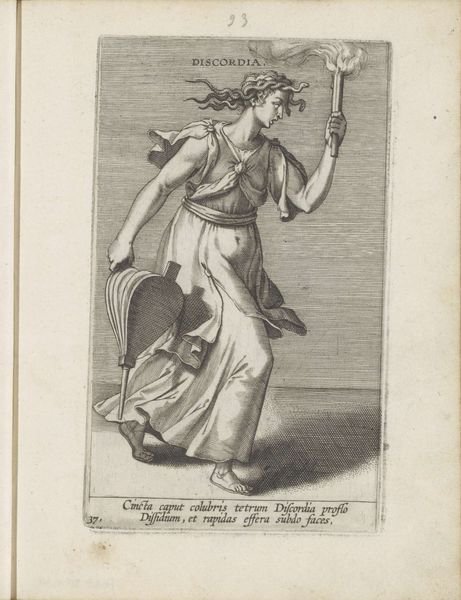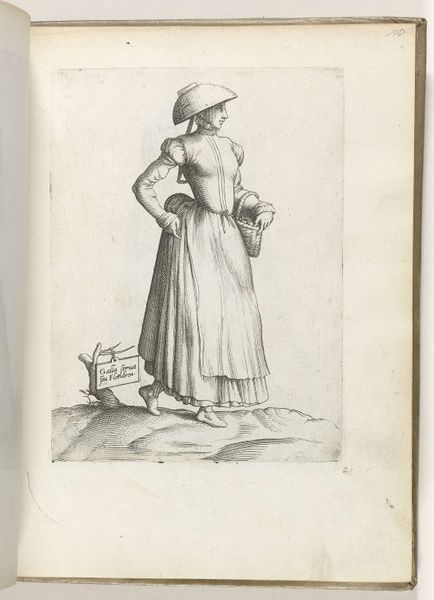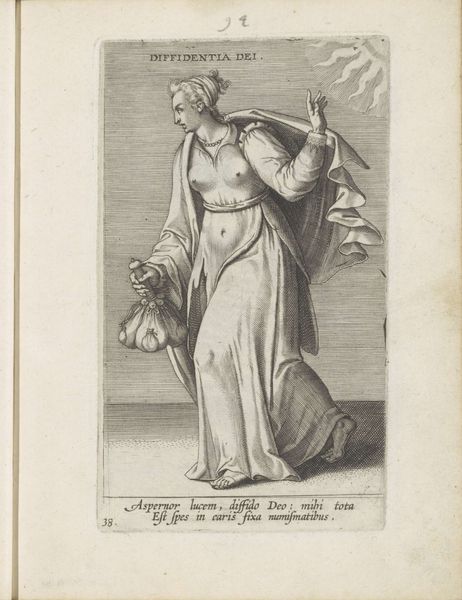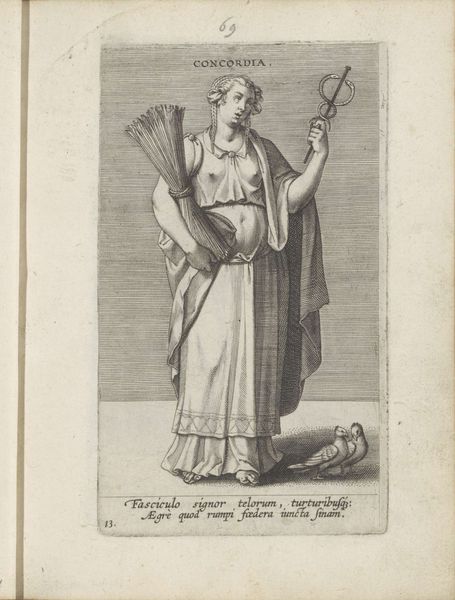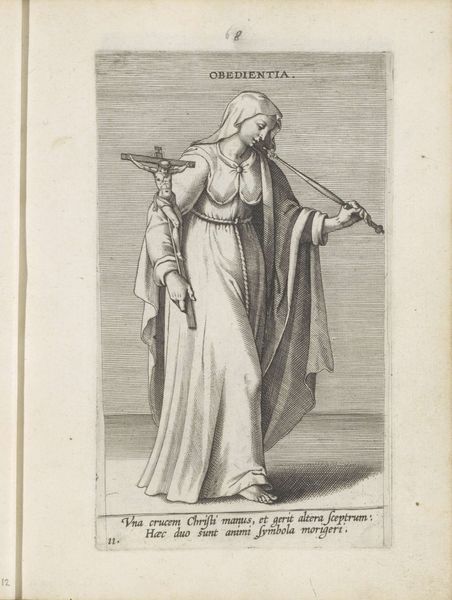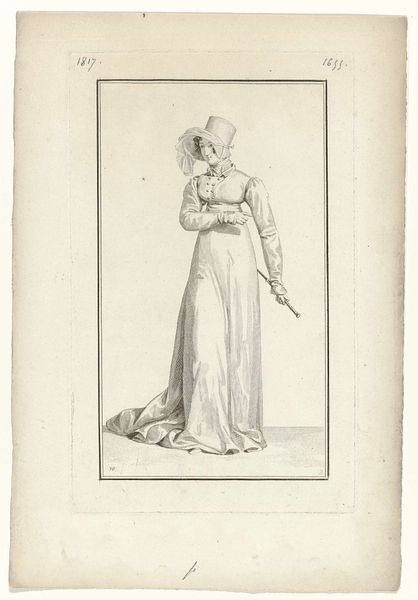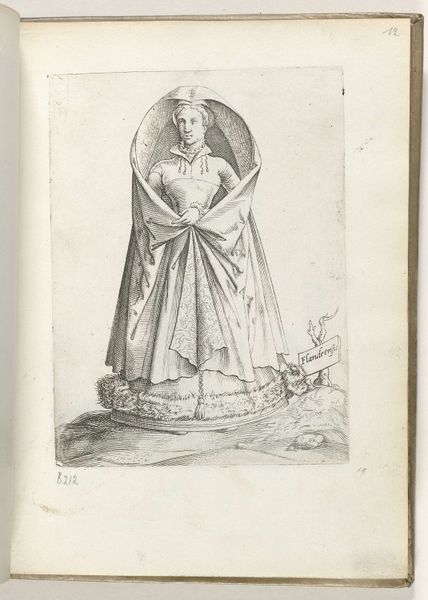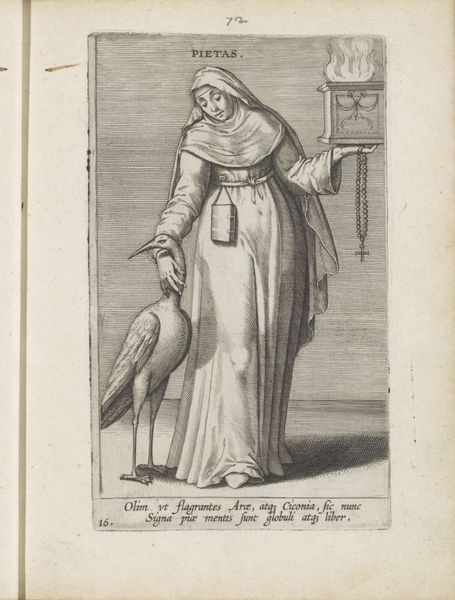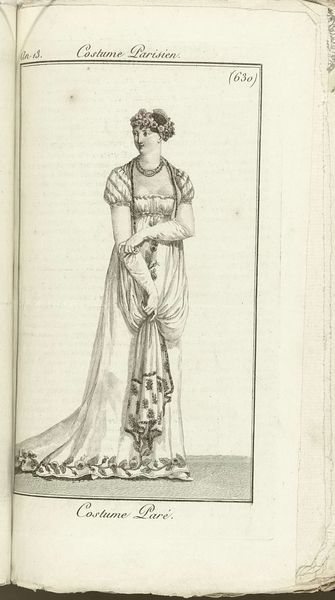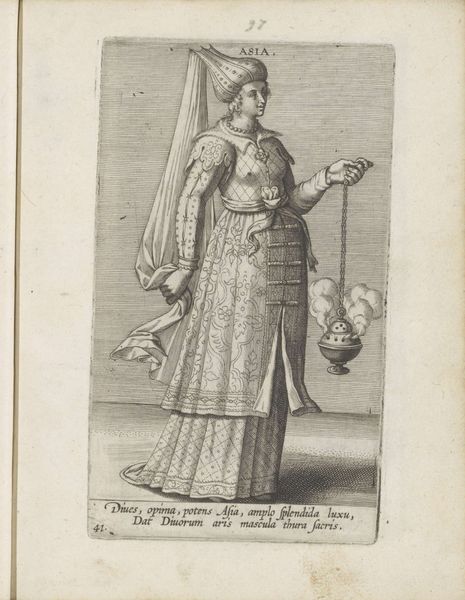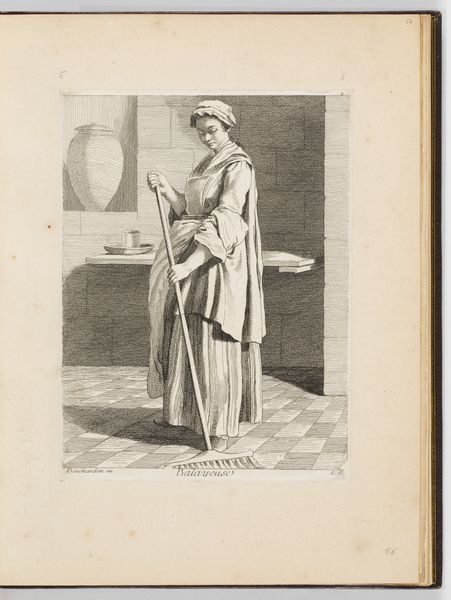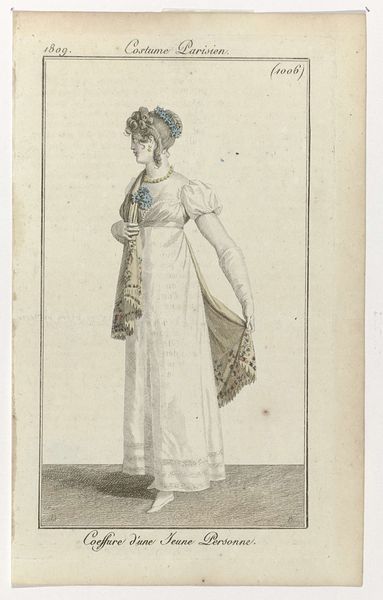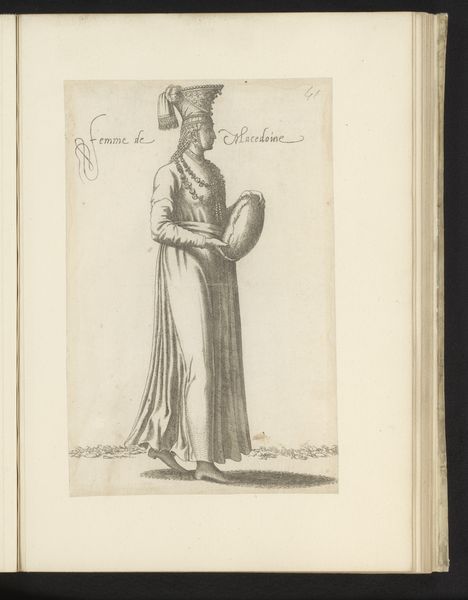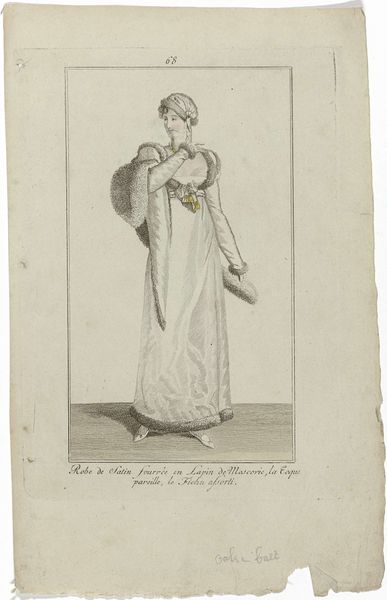
engraving
#
portrait
#
allegory
#
old engraving style
#
mannerism
#
figuration
#
line
#
history-painting
#
engraving
Dimensions: height 153 mm, width 87 mm
Copyright: Rijks Museum: Open Domain
Philips Galle created this engraving, "Gebrekkigheid," sometime between 1537 and 1612. As an image of debility, it offers a glimpse into the cultural perceptions of physical weakness during the late Renaissance. The figure's posture, supported by crutches, immediately conveys a sense of vulnerability, but what does it mean? The work reflects a period grappling with shifting ideas about the body, health, and social status. The subject's clothing suggests a certain class position, and the engraving subtly raises questions about who is deemed worthy or unworthy within society. The decision to depict debility head on invites us to reflect on historical attitudes toward illness, aging, and the value of human life. Ultimately, "Gebrekkigheid" invites us to consider how societies have historically treated its most vulnerable members. It’s a reminder of the importance of empathy and inclusion in our own time.
Comments
No comments
Be the first to comment and join the conversation on the ultimate creative platform.
